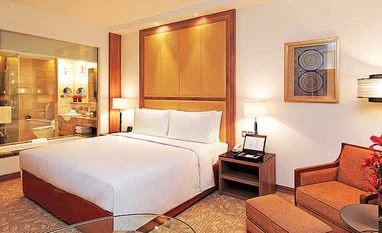The key difference between the two is the control over quality and experience. In an aggregation model, the player takes part of a hotel room inventory and tries to sell it under a brand. Rooms from the same hotel are sold separately by the hotel owner and, at times, on other online platforms, too (without a brand). In the branded approach, all the rooms of the hotel seek to offer a uniform experience and pricing.
Fab Hotels, which has 100 hotels under its franchisee, experimented with the aggregation model and decided to discontinue it. “The variation of service is higher in budget hotels. As a brand, you need to bring it down. But in aggregation, you have little control on these. As an aggregator, you do not add much value. The interests of an aggregator having partial inventory in a hotel and the interests of the hotel owner are usually not aligned. There is disparity in pricing and there is some cannibalisation of the overall business due to higher discounts by the aggregator,” said Adarsh Manpuria, co-founder of Fab Hotels.
Prafulla Mathur, founder and CEO of WudStay, echoes Manpuria’s views. WudStay started as an aggregator, like OYO, but is now converting these hotels to branded franchisee. “We are converting aggregated properties to full franchisees. Last year, online travel agents (like MakeMyTrip) had delisted us as we had a partial inventory in some hotels which they also had separately listed on their platform. Now, we are back with them,” said Mathur. About 50 of the 650 hotels with which it works have been turned into franchisees. Treebo, another start-up in this space, never opted for aggregation and grew on a brand driven model.
Online travel agents (OTAs) are strong players in the online travel space. Decision by prominent agents such as MakeMyTrip and Yatra to delist OYO was a major disincentive for aggregators. “We removed OYO because their quality had issues and they were becoming a competition in the budget space. They wanted to aggregate properties and then leverage our platform. It did not make sense for us,” Rajesh Magow, co-founder and CEO (India) of MakeMyTrip had said in an interaction last month.
OYO itself launched a franchisee model, Flagship, early this year “to provide a more premium offering with the experience controlled entirely by OYO”. It has 75 properties under this model. Ritesh Agarwal, founder of OYO, said, “We have strong partnerships with OTAs such as Booking.com, Expedia and Cleartrip. The ones that do not partner with us have attempted to launch their own surrogates on this model – but here's the beauty of our business. It is not merely aggregation or online distribution. The heart of our business is operations."
Agarwal says there is no ambiguity in the company’s mind about the future potential of aggregation business. “We have continued to innovate within the category to add further value to both the customer and partner experience. Technology enables us to exercise greater control over guest interactions and on-stay experience."
)